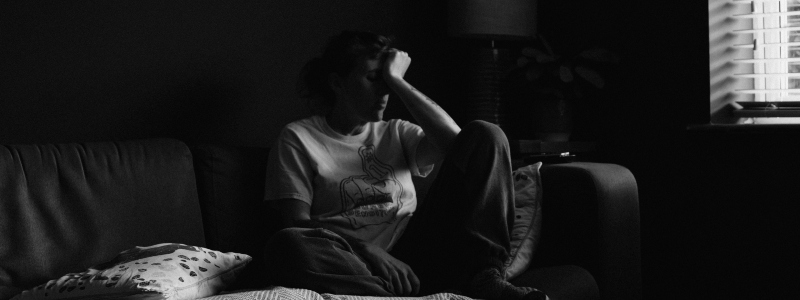We use the words unconscious and subconscious quite frequently, but what do they really describe?
The unconscious and its processes are an integral aspect of exploration and discovery in psychoanalytic therapy, but what do we mean and understand when we refer to this unseen and unknowable territory? There may be as many answers to this, as there are individuals who wonder about the question. Perhaps the process of wondering is an end in itself and a definitive answer should always elude us.
What do the theory books tell us?
A monumental and encyclopaedic book, “The Discovery of the Unconscious” was published in 1970 by Henri Ellenburger, that describes our human fascination with developing an understanding of the nature and revelations of this unknown realm of our inner being. Tracing the evolutionary path of this long-standing interest, he describes the functions of: shaman, as magical guides to spiritual realms; priests, as confessors and exorcists; and the mesmerists and hypnotists that emerged as we entered the cultural eras of the scientific and rational. This lineage culminates with the domains of psychiatric and psychological systems – the talking
therapies used today to reach a deeper understanding of ourselves. Pioneers engaged in mapping this exploration range across sociological, anthropological, philosophical, esoteric, psychological and neuroscientific fields.
First expeditions of the pioneers of psychoanalysis
From the psychoanalytic field, Sigmund Freud and Carl Jung were not the first, but possibly two of the most prominently remembered, who attempted to describe this unknowable territory.
What did Sigmund Freud find on his journey?
Freud imagined the unconscious as an isolated phenomenon, hidden in the individual psyche of each person. He proposed a shape for this territory consisting of three spaces, we can see these as layers or depths. He named these the unconscious, the pre-conscious and the conscious.
Freud understood humans to have two basic energetic forces, similar to the impulses that fire across neurons. These he described as ‘drives’: a libidinal or life drive, and a death drive, destructive and the opposite of the libidinal drive. He imagined these drives acting across and between the realms of our psyche or mind – conscious and unconscious, and believed this system favoured an economy of action and affect. These can direct our thoughts, actions and behaviours without our being conscious of them. So, when we experience a free-flowing movement of these impulses we are in a healthy psychological state, or we can experience ill
health as a result of resistance, blockages, imbalance and repression of these drives. Freud believed that the working of these drives in the unconscious could be revealed and analysed under the guidance of a psychotherapist. The therapists work was to illuminate these processes, identified by observing the retelling of dreams, free association (authentic, undirected expression of thoughts and feelings), misdeeds or mis-sayings, or by placing the client under hypnosis.
How were Carl Jung’s findings different?
Jung’s mapping of these territories was quite different from Freud’s. He imagined the conscious and unconscious as both individual and collective spaces, ‘an extremely fluid state of affairs… encompassing everything that ever was or will be’ (1954). For Jung our individual conscious holds the sum of all the experiences that are specific to us. This is where our personal ‘complexes’ exist, bodies of feelings, thoughts and memories attached to emotional states which inform our actions and behaviours. He added the concept of the collective unconscious to Freud’s map, a shared and accessible space available to every human being. He believed this collective space was the container of universal archetypes, motifs and knowledge from all of
human culture and experience. Jung’s map of the unconscious was developed using metaphors from esoteric traditions. His approach to the unconscious was teleological, in that he felt the unconscious could be understood as functioning intuitively or instinctively, providing a means for the transformations of the self.
So how do we try to understand it today?
It might be useful to imagine the unconscious as an ever-changing territory which we live from, are informed by, and feel the effect of, in our conscious existence. In attempting to map its geography, climates, currents and systems, I find it useful to remember philosopher Alfred Korzybski words, ‘The map is not the territory, the word is not the thing it describes.’
Where do we begin when we look for it then?
I read a wonderful quote once, ‘the buying of more books than one can read is nothing less than the soul reaching towards infinity’ (A. Edward Newton). The narratives we find in stories, myths and fables can often present us with opportunities to explore our own inner worlds.
Phillip Pullman writes that ‘After nourishment, shelter and companionship, stories are the thing we need most in the world.’ Perhaps in these stories we are able to find maps to our unconscious? And in our approach to finding it, we might take Pullman’s analogy for finding his Secret Commonwealth as a guide, ‘You gotta think about it the same way as if you want to see it. You got to look at it sideways. Out of the corner of your eye. So you gotta think about it out of the corner of your mind. It’s there and it en’t, both at the same time. If you want to see… the absolute worst way is to go about the marsh with a searchlight.’ (2019).
How can therapy help understand our unconscious processes?
A therapeutic alliance is a relationship in which the therapist listens to and engages with the stories brought to them. Attending to these narratives with an open-minded curiosity, can help explore, bring to the surface and re-position experiences that are held in our unconscious.
In Bettelheim’s book The Uses of Enchantment he writes that, ‘when unconscious material is to some degree permitted to come to awareness and worked through in imagination, its potential for causing harm – to ourselves or others – is much reduced; some of its forces can then be made to serve positive purposes.’
Something remarkable happens to our physiology when we share stories. Neuroimaging data taken from a range of studies have illustrated how the practice of engaging in joint narrative retelling and creation causes a physiological mirroring in the brain activity of the collaborating parties, neural synchronisation or coupling. In this way, the act of sharing our personal stories with a receptive listener, can be understood as mapping our experiences into the mind of the other, which can be seen reflected in the brain’s physically synchronised response.
Why can this be a really helpful journey of exploration?
In my favourite quote from Donald Winnicott, he writes that; Psychotherapy is not making clever and apt interpretations; by and large it is a long-term giving the patient back what the patient brings. It is a complex derivative of the fact that reflects what is to be seen. I like to think of my work this way, and to think that
if I do this well enough the patient will find his or her own self, and will be able to exist and feel real. Feeling real is more than existing, it is finding a way to exist as oneself, and to have a self into which to retreat for relaxation. (1971)
If we think of psychotherapy as a journey towards finding our way to exist as ourselves, we might then see it as an attempt to co-create a map of the intangible territory of our unconscious and its processes with our therapist. The map is not the territory, but we can suggest its form ‘out of the corner of our minds’ by sharing stories. These stories allow the therapist to feel and experience with us, as is shown to be reflected in the synchronisation of their neural networks. This mirroring is a mutual experience and often as illuminating for the therapist as it is for the client – a parallel process.
Where to next?
I have tried here to share my understanding of what the unconscious might be and how attempting to illuminate some of its processes is integral to the therapeutic approach I believe in. I hope this exploration is of use to the people who come and share their stories with me.
Sharing stories is how we communicate across many of our interactions with all sorts of people.
In psychotherapy, these conversations are held within a ‘third’ space that attempts to create unconscious resonance, regulation and revision within the alliance. This aims to facilitate the individual’s self-discovery, finding a secure base from which to live creatively from and enjoy, and this will be the subject of another story to share.
I believe wholeheartedly, that the benefits of exploring our unconscious territories, within a therapeutic partnership, can be life changing. After all, as Jung said;
‘Until you make the unconscious conscious, it will direct your life and you will call it fate.’
Shiraz El Showk is a Training Member of the Association for Group and Individual Psychotherapy (AGIP) and a registered Training member of the UKCP, She is experienced in Psychodynamic counselling and Psychoanalytic Psychotherapy work with individuals, on both long and short term basis. She is available at our Brighton & Hove Practice, Lewes Practice and Online.














